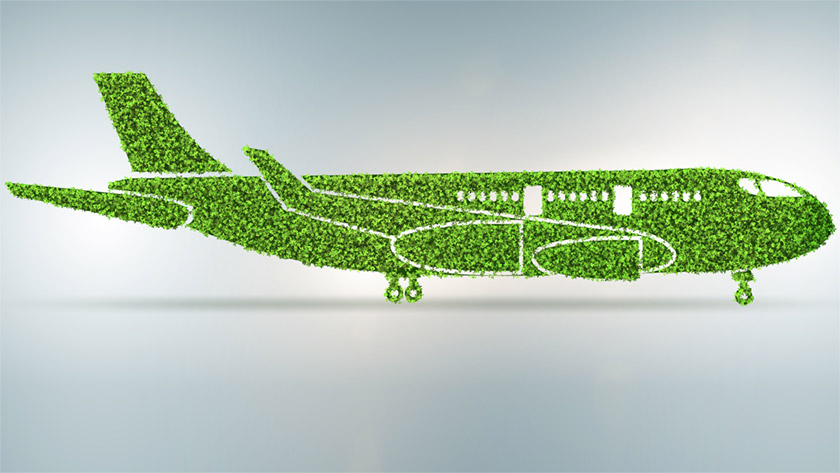The European Commission has recently published an article presenting EU funded BIO4A project’s solution and approach to boost the production capacity of EU jet fuel from renewable sources.
Jet fuel from renewable sources holds the key to significantly reducing the environmental impact of aviation. BIO4A project researchers aim at increasing the production capacity of sustainable aviation fuels (SAF) by developing a process that would leverage the growing of feedstock to rehabilitate land at risk of desertification.
“Not that Europe is lacking in capacity to produce biofuels. However, within the jet-fuel category, the installed capacity to produce SAF is currently limited in view of the decarbonisation need” explains the project coordinator David Chiaramonti, RE-CORD and Polytechnic of Turin.

© Elnur #272174260, source:stock.adobe.com 2020
“The solution we are proposing ties in perfectly with the Sustainable Development Goals and with the European Green Deal” Chiaramonti says. “The partners will derive their fuel from waste lipids such as used cooking oil. However, they are also looking into ways of procuring the abundant feedstock needed to decarbonise aviation from oil crops cultivated without displacing the production of food or feed”.
The BIO4A team have set themselves a target of at least 5 000 tonnes of biojet to be produced before the end of the project, in April 2022. This achievement will build on a milestone already reached: as of June 2020, BIO4A has converted an existing refinery in France, and the production of biofuel will begin soon.
As part of its bid to advance the transition towards SAF, BIO4A is looking into the entire value chain, from the cultivation of oil crops to the delivery of biojet to airports.
“The feedstock side offers the widest scope for savings and also provides opportunities for additional sustainability gains”, Chiaramonti explains. BIO4A is cultivating selected varieties of the drought-resistant oil crop camelina in rotation with food or feed crops, using methods designed to help restore marginal land at risk of marginalisation or desertification. “The aim is to support the switch to more sustainable agriculture” Chiaramonti continues. “The more marginal the land, the more chemicals and water are typically used. We are trying to counteract this phenomenon”.
The proposed approach involves enriching the soil with a mix of compost and biochar – charcoal made by processing biomass. “Biochar is recognised as one of the most promising methods to sequester and remove carbon from the atmosphere”, Chiaramonti points out. “It stays in the soil for hundreds of years, helping to preserve it for future generations”.
“While the enrichment process does involve some cost, this expense should be seen as an investment”, the project coordinator says. “It is one of several areas along the biojet value chain where targeted policy support could help to accelerate the transition”, he adds, since “BIO4A intends to produce recommendations for policy- and decision-makers along with its first harvest of homegrown aviation fuel”.
Read the full article here https://ec.europa.eu/research/infocentre/article_en.cfm?artid=53065
